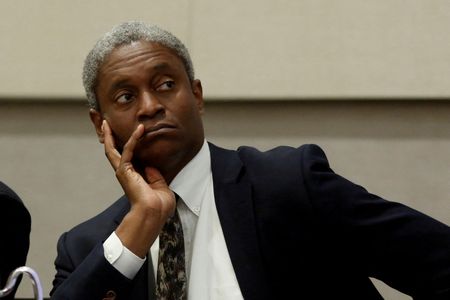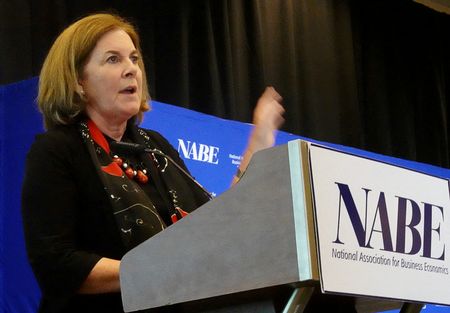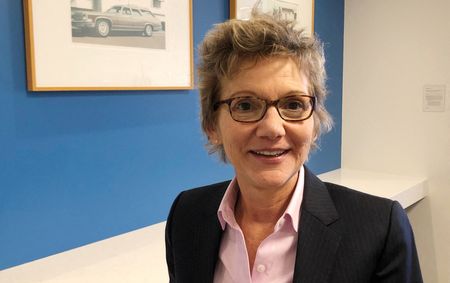 1
1 1
1



By Jonnelle Marte, Howard Schneider and Ann Saphir
(Reuters) – Federal Reserve policymakers are set on raising interest rates in March but spoke cautiously on Monday about what might follow, signaling this rate hike cycle may not come with the same sort of hand-holding and guidance that markets have come to expect.
Several Fed officials said it was clearly time for the U.S. central bank to begin removing support from an economy marked by strong growth and the highest inflation in four decades, but they said the exact pace and timing of those moves would depend on what happens with inflation and the broader economy.
“We definitely are poised for a March increase,” San Francisco Fed President Mary Daly told Reuters in a brief phone interview. “But after that, I want to see what the data brings us … let’s get through Omicron, let’s look at this and let’s see.”
Fed officials signaled last week they intend to raise interest rates in March, a key step in removing the support offered to the economy during the coronavirus pandemic.
Policymakers are also expected to begin shrinking the central bank’s nearly $9 trillion portfolio later this year, a balance sheet that doubled in size as the Fed purchased Treasury securities and mortgage-backed securities to shore up markets and the economy.
Officials say the U.S. economy no longer needs the same level of support. But their outlook for how quickly they can remove that accommodation is clouded by the virus.
Some economists say U.S. economic growth could slow at the start of this year – after it expanded last year at the fastest annual pace since 1984 – as fiscal support wanes and a surge in infections caused by the Omicron COVID-19 variant leads to prolonged disruptions.
“We are going to need to be thinking very carefully about how things are going, how the economy responds to our first moves,” Atlanta Fed President Raphael Bostic told Yahoo Finance. “We are not set on any particular trajectory. The data will tell us what is happening.”
Those economic reports could show mixed results. Data watched closely by the Fed showed that inflation expectations remained broadly anchored through the end of last year, while some of the most intense price pressures may have begun to ease.
However, the labor market recovery could be slowing after infections soared. Economists polled by Reuters expect the U.S. payrolls added a median of 153,000 jobs in January, the fewest in a year, and about 10% of those polled think the economy lost jobs over the month.
Kansas City Fed President Esther George said the uncertainty caused by the virus makes it difficult for Fed officials to provide the same kind of guidance it has offered in the past.
“It is in no one’s interest to try to offset the economy with unexpected adjustments,” George said during an event organized by The Economic Club of Indiana. “I do think the Federal Reserve is going to have to move deliberately in its decisions to begin to withdraw accommodation.”
(Reporting by Jonnelle Marte, Ann Saphir and Howard Schneider; Editing by Howard Goller)